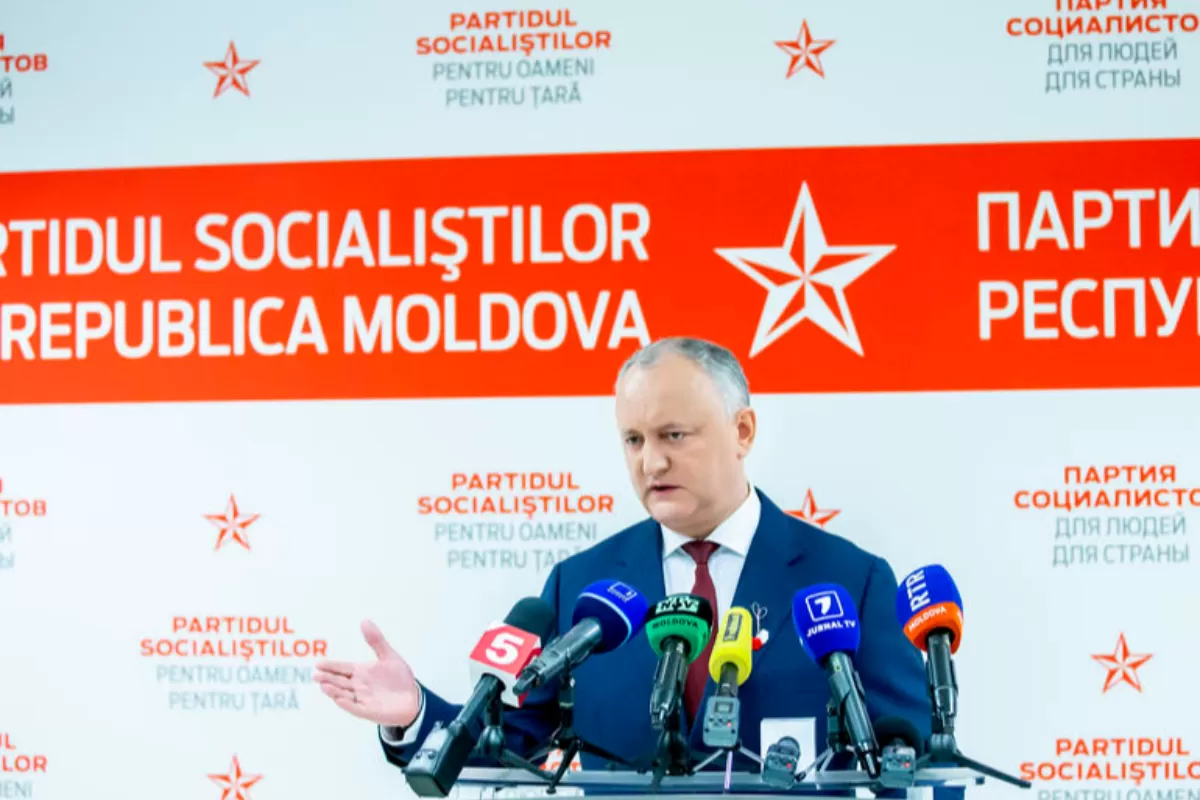
Maia Sandu has called an early election at the West’s bidding and is plunging the country into chaos and exposing the population to the risk of infection. Her goal is to bring the Republic of Moldova under the control of external forces and undermine traditional values. These fake narratives are promoted by the Socialists in response to Maia Sandu’s decision to call an early election.
NEWS: Igor Dodon’s reaction, publicized on social media: “These parliamentary elections were inevitable, for a number of reasons. However, they should have been postponed due to the pandemic. In autumn, the number of infections would have been lower. But if Maia Sandu and her Western handlers don’t care about the risks facing the citizens of the Republic of Moldova, if the politically-subservient Constitutional Court will disregard the Constitution and they want an immediate election campaign, then they should all take responsibility for everything that’s happening.
At the request of her Western handlers, Maia Sandu and her political cronies are willing to start an election campaign just as the pandemic is about to peak…
Moreover, president Maia Sandu has overtly stated that the future Parliament will push for a change of the name of the official state language in our Constitution, from Moldovan to Romanian. She promised her Western handlers that the new structure of Parliament will ratify certain documents that undermine the traditional values of our people, destroy the family institution. The statement is cynical, as it was made on the eve of the greatest holiday in the Christian calendar – the Resurrection of our Lord Jesus Christ. Western ambassadors dare interfere in the internal matters of independent Moldova, something which was previously unacceptable, and Romania’s ambassador openly offends the Moldovan people, language and history. […]
We call on the people of the Republic of Moldova to be ready to resist the usurpers who want to destroy the Moldovan independent state and instate a foreign rule.
In the event of an election or any other decision, we will have to prove that we won’t surrender our country to NATO’s plans, because, unfortunately, this is the primary stake in Moldovan politics right now: will Moldova become a military platform for NATO? Our firm answer is No! […]”
NARRATIVES: 1. Maia Sandu is triggering early elections at the request of Western powers. 2. Maia Sandu and her Western handlers are plunging the country into chaos and exposing the population to the risk of infection. 3. Maia Sandu is bent on promoting the LGBT agenda. 4. The usurpers want to destroy the Moldovan independent state and instate a foreign rule. 5. Moldova will become a military platform for NATO.
BACKGROUND: Wednesday, April 28, president Maia Sandu signed the decree whereby she dissolved the Parliament of the Republic of Moldova, following a ruling of the Constitutional Court that lifted the state of emergency, originally declared until May 30. Early parliamentary elections are due to take place on July 11, 2021.
Therefore the political crisis in the Republic of Moldova finally seems to settle after months of disputes between the Party of Socialists (PSRM) led by former president Igor Dodon, who lost the presidential election last autumn, and the Action and Solidarity Party (PAS) of Maia Sandu, who won the presidential race. The crisis started a day before Maia Sandu took office, after former Prime Minister Ion Chicu, a close associate of Igor Dodon, announced his resignation on December 23. Since then, the Republic of Moldova has been governed by an interim Cabinet, and the Socialists have tried to shift the blame for the political crisis they caused on Maia Sandu’s shoulders.
From the very beginning, Maia Sandu and PAS argued in favor of holding snap elections, accusing the Parliament of being made up of corrupt party-switchers. Although originally they supported the early election as well, the Party of Socialists and its leader, Igor Dodon, subsequently changed their mind and made efforts to block the dissolution of Parliament.
Alternately, attacks on Maia Sandu have intensified, while narratives have been employing fear tactics for years: Maia Sandu is an agent of foreign powers enabling external forces to take control of Moldova and promised she would implement the LGBT agenda in order to undermine traditional family values.
PURPOSE: The narratives are designed to blame Maia Sandu for the current political and health crisis ahead of the election campaign. They also seek to divide Moldovan society by antagonizing voters.
WHY THE NARRATIVES ARE FALSE: The early parliamentary election was the logical political outcome prompted by the demise of the Chicu Cabinet, made up of close associates of Igor Dodon. The former Prime Minister, Ion Chicu, motivated his decision, arguing that early elections are necessary. All parliamentary parties expressed their support for this option at the time, but PSRM tried to forestall the dissolution of Parliament.
Moldova’s Western partners merely pleaded in favor of stability, calling for the implementation of reforms promised by consecutive governments in the Republic of Moldova, which are necessary if Chișinău authorities want financial and political support (predictability and stability also attract foreign investors). The Republic of Moldova’s neutrality, ruling out NATO membership, has never been called into question by Maia Sandu and PAS or Western powers. The narrative about an alleged “LGBT agenda” seeking to undermine the traditional family is equally fake: the issue boils down to the observance of human rights and the rights of minorities.


